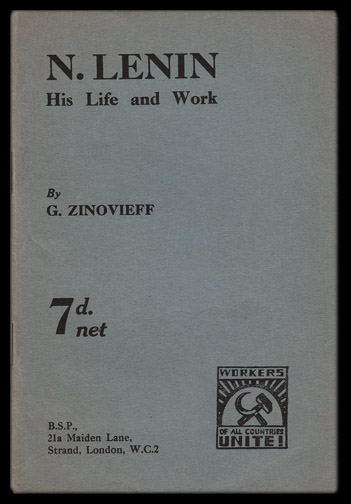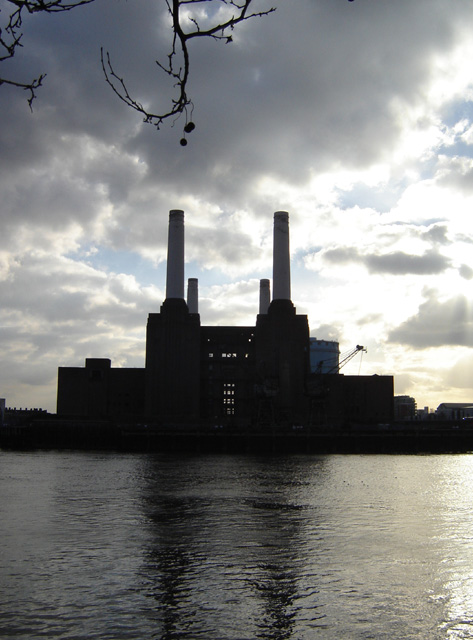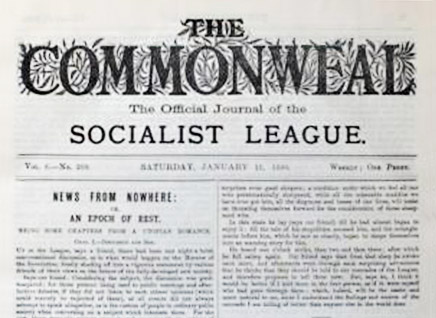|
Socialist Party Of Great Britain
The Socialist Party of Great Britain (SPGB) is a socialist political party in the United Kingdom. Founded in 1904 as a split from the Social Democratic Federation (SDF), it advocates using the ballot box for revolutionary purposes and opposes both Leninism and reformism. It holds that countries which claimed to have established socialism had only established "state capitalism" and was one of the first to describe the Soviet Union as state capitalist. The party's political position has been described as a form of impossibilism. History Origins The SPGB was founded in 1904 as a split from the Social Democratic Federation (SDF) to oppose the SDF's reformism and as part of a response to that organisation's domination by Henry Hyndman (which also led to the SPGB's aversion to leadership). This split was also partly a reaction to the SDF's involvement in the Labour Representation Committee, which went on to found the Labour Party. It mirrored the split that led to the ... [...More Info...] [...Related Items...] OR: [Wikipedia] [Google] [Baidu] |
British Socialist Party
The British Socialist Party (BSP) was a Marxist political organisation established in Great Britain in 1911. Following a protracted period of factional struggle, in 1916 the party's anti-war forces gained decisive control of the party and saw the defection of its pro-war right wing. After the victory of the Bolshevik Revolution in Russia at the end of 1917 and the termination of the First World War the following year, the BSP emerged as an explicitly revolutionary socialist organisation. It negotiated with other radical groups in an effort to establish a unified communist organisation, an effort which culminated in August 1920 with the establishment of the Communist Party of Great Britain. The youth organisation the Young Socialist League was affiliated with the party. Organizational history Formative period (1911–1914) The founding conference which established the British Socialist Party was called by the Social Democratic Party (SDP), a group best remembered to history ... [...More Info...] [...Related Items...] OR: [Wikipedia] [Google] [Baidu] |
Leninism
Leninism is a political ideology developed by Russian Marxist revolutionary Vladimir Lenin that proposes the establishment of the dictatorship of the proletariat led by a revolutionary vanguard party as the political prelude to the establishment of communism. The function of the Leninist vanguard party is to provide the working classes with the political consciousness (education and organisation) and revolutionary leadership necessary to depose capitalism in the Russian Empire (1721–1917). Leninist revolutionary leadership is based upon '' The Communist Manifesto'' (1848), identifying the communist party as "the most advanced and resolute section of the working class parties of every country; that section which pushes forward all others." As the vanguard party, the Bolsheviks viewed history through the theoretical framework of dialectical materialism, which sanctioned political commitment to the successful overthrow of capitalism, and then to instituting socialism; and, as ... [...More Info...] [...Related Items...] OR: [Wikipedia] [Google] [Baidu] |
Battersea
Battersea is a large district in south London, part of the London Borough of Wandsworth, England. It is centred southwest of Charing Cross and extends along the south bank of the River Thames. It includes the Battersea Park. History Battersea is mentioned in the few surviving Anglo-Saxon geographical accounts as ''Badrices īeg'' meaning "Badric's Island" and later "Patrisey". As with many former parishes beside tidal flood plains the lowest land was reclaimed for agriculture by draining marshland and building culverts for streams. Alongside this was the Heathwall tide mill in the north-east with a very long mill pond regularly draining and filling to the south. The settlement appears in the Domesday Book of 1086 as ''Patricesy'', a vast manor held by St Peter's Abbey, Westminster. Its ''Domesday'' Assets were: 18 hides and 17 ploughlands of cultivated land; 7 mills worth £42 9s 8d per year, of meadow, woodland worth 50 hogs. It rendered (in total): £75 9s 8d. ... [...More Info...] [...Related Items...] OR: [Wikipedia] [Google] [Baidu] |
Socialist Labour Party (UK, 1903)
The Socialist Labour Party was a socialist political party in the United Kingdom. It was established in 1903 as a splinter from the Social Democratic Federation (SDF) by James Connolly, Neil Maclean and SDF members impressed with the politics of the American socialist Daniel De Leon, a Marxist theoretician and leading figure of the Socialist Labor Party of America. After decades of existence as a tiny organisation, the group was finally disbanded in 1980. Organisational history Formation The British Socialist Labour Party began as a faction of the Social Democratic Federation (SDF) headed nationally by Henry Hyndman. A group of Scottish members of the organisation, led by an engineering worker named George Yates, strongly criticised the party leadership of the SDF for supporting the entry of conservative socialist Alexandre Millerand into the bourgeois French cabinet at the 1900 Congress of the Second International. The group attacked the party leadership as reformist an ... [...More Info...] [...Related Items...] OR: [Wikipedia] [Google] [Baidu] |
Second International
The Second International (1889–1916) was an organisation of socialist and labour parties, formed on 14 July 1889 at two simultaneous Paris meetings in which delegations from twenty countries participated. The Second International continued the work of the dissolved First International, though excluding the powerful anarcho-syndicalist movement. While the international had initially declared its opposition to all warfare between European powers, most of the major European parties ultimately chose to support their respective states in World War I. After splitting into pro- Allied, pro-Central Powers, and antimilitarist factions, the international ceased to function. After the war, the remaining factions of the international went on to found the Labour and Socialist International, the International Working Union of Socialist Parties, and the Communist International. History Pre-foundation conferences (1881–1889) The foundation of a new international was first discussed ... [...More Info...] [...Related Items...] OR: [Wikipedia] [Google] [Baidu] |
Socialist League (UK, 1885)
The Socialist League was an early revolutionary socialist organisation in the United Kingdom. The organisation began as a dissident offshoot of the Social Democratic Federation of Henry Hyndman at the end of 1884. Never an ideologically harmonious group, by the 1890s the group had turned from socialism to anarchism, and disbanded in 1901. Organizational history Origins Until March 1884, the members of the Democratic Federation, forerunner of the Social Democratic Federation (SDF), worked together in harmony. The new organisation had expected to make rapid headway with existing radical workingmen's organisations but few chose to join the SDF. Early enthusiasm gave way to disappointment and introspection. Personal relationships began to loom large among the small group's leading members. The personal vanity and domineering attitude of the organisation's founder, Henry Hyndman, along with his nationalism and fixation on parliamentary politics, were the leading causes of the inter ... [...More Info...] [...Related Items...] OR: [Wikipedia] [Google] [Baidu] |
Labour Party (UK)
The Labour Party is a political party in the United Kingdom that has been described as an alliance of social democrats, democratic socialists and trade unionists. The Labour Party sits on the centre-left of the political spectrum. In all general elections since 1922, Labour has been either the governing party or the Official Opposition. There have been six Labour prime ministers and thirteen Labour ministries. The party holds the annual Labour Party Conference, at which party policy is formulated. The party was founded in 1900, having grown out of the trade union movement and socialist parties of the 19th century. It overtook the Liberal Party to become the main opposition to the Conservative Party in the early 1920s, forming two minority governments under Ramsay MacDonald in the 1920s and early 1930s. Labour served in the wartime coalition of 1940–1945, after which Clement Attlee's Labour government established the National Health Service and expanded the welfa ... [...More Info...] [...Related Items...] OR: [Wikipedia] [Google] [Baidu] |
British Labour Party
The Labour Party is a political party in the United Kingdom that has been described as an alliance of social democrats, democratic socialists and trade unionists. The Labour Party sits on the centre-left of the political spectrum. In all general elections since 1922, Labour has been either the governing party or the Official Opposition. There have been six Labour prime ministers and thirteen Labour ministries. The party holds the annual Labour Party Conference, at which party policy is formulated. The party was founded in 1900, having grown out of the trade union movement and socialist parties of the 19th century. It overtook the Liberal Party to become the main opposition to the Conservative Party in the early 1920s, forming two minority governments under Ramsay MacDonald in the 1920s and early 1930s. Labour served in the wartime coalition of 1940–1945, after which Clement Attlee's Labour government established the National Health Service and expanded the wel ... [...More Info...] [...Related Items...] OR: [Wikipedia] [Google] [Baidu] |
Leadership
Leadership, both as a research area and as a practical skill, encompasses the ability of an individual, group or organization to "lead", influence or guide other individuals, teams, or entire organizations. The word "leadership" often gets viewed as a contested term. Specialist literature debates various viewpoints on the concept, sometimes contrasting Eastern and Western approaches to leadership, and also (within the West) North American versus European approaches. U.S. academic environments define leadership as "a process of social influence in which a person can enlist the aid and support of others in the accomplishment of a common and ethical task". Basically, leadership can be defined as an influential power-relationship in which the power of one party (the "leader") promotes movement/change in others (the "followers"). Some have challenged the more traditional managerial views of leadership (which portray leadership as something possessed or owned by one individual ... [...More Info...] [...Related Items...] OR: [Wikipedia] [Google] [Baidu] |
Henry Hyndman
Henry Mayers Hyndman (; 7 March 1842 – 20 November 1921) was an English writer, politician and socialist. Originally a conservative, he was converted to socialism by Karl Marx's '' Communist Manifesto'' and launched Britain's first left-wing political party, the Democratic Federation, later known as the Social Democratic Federation, in 1881. Although this body attracted radicals such as William Morris and George Lansbury, Hyndman was generally disliked as an authoritarian who could not unite his party. Nonetheless, Hyndman was the first author to popularise Marx's works in English. Early life The son of a wealthy businessman, Hyndman was born on 7 March 1842 in London. After being educated at home, he entered Trinity College, Cambridge. Hyndman later recalled: I had the ordinary education of a well-to-do boy and young man. I read mathematics hard until I went to Cambridge, where I ought, of course, to have read them harder, and then I gave them up altogether and devoted m ... [...More Info...] [...Related Items...] OR: [Wikipedia] [Google] [Baidu] |
Impossibilism
Impossibilism is a Marxist theory that stresses the limited value of political, economic, and social reforms under capitalism. As a doctrine, impossibilism views the pursuit of such reforms as counterproductive to the goal of achieving socialism as they stabilize, and therefore strengthen, support for capitalism. Impossibilism holds that reforms to capitalism are irrelevant or outright counter-productive to the goal of achieving socialism and should not be a major focus of socialist politics. Impossibilists insist that socialists should primarily or solely focus on structural changes (sometimes termed "revolutionary changes") to society as opposed to advancing social reforms. Impossibilists argue that spontaneous revolutionary action is the only viable method of instituting the structural changes necessary for the construction of socialism; impossibilism is thus held in contrast to reformist socialist parties that aim to rally support for socialism through the implementation of po ... [...More Info...] [...Related Items...] OR: [Wikipedia] [Google] [Baidu] |









